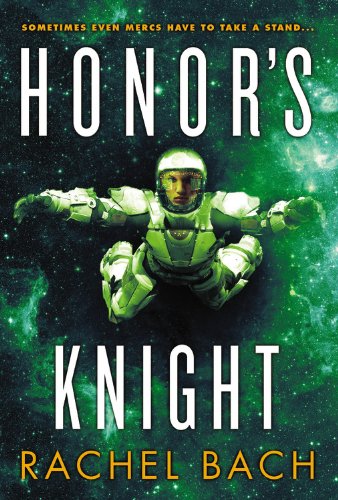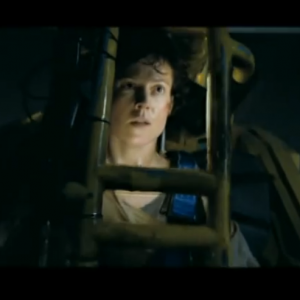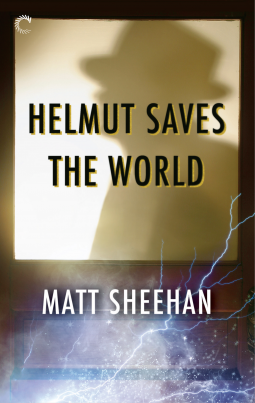[tabby title=”Second Tab”]

Not the cover, more’s the pity.
Don’t ask me why I decided to read an sf romance novel. I’m nowhere near being the target audience. Maybe I missed the last line in the helpful burb that might have steered me clear; “With their hearts and fates on a collision course, they must unlock each other’s secrets and forge a bond of trust before a rekindled conflict pushes their two races into repeating the mistakes of the past. The Ophelia Prophecy is the thrilling new SF romance…” Really, that should have done it. But even though I’m not the audience, I’m pretty sure there is one out there for this carapace-ripper of a chimeric-biotech romance fiction. And I respect that, sort of.
Asha is one of a thousand or so survivors of a once proud people (genetically unmodified humans), now living in the city known as Sanctuary in the middle of the (Utah) desert whose boundaries are patrolled by their (chimeric mantis-human hybrid) conquerors. When her (computer hacker / archivist) father is taken by the enemy, she concocts a plan to follow him and do what she can (it gets muddy here) to save him. After having her memory wiped by hypnosis, she engineers her own capture by the enemy on patrol, who turns out to be their ruler’s son, which makes him the prince, who immediately falls head-over-carapace for her. Of course he does. She’s a twenty-something librarian from a small town in the Utah desert, which makes her totally hot. Well, totally con-hot at the very least.
Mankind created a host of human-animal crossbreeds a generation or two before the story opens, the most successful of which are the manti, a cross between the praying mantis and homo sap. It’s not clear that humanity actually tried to exterminate their creations, though they did round them up and dump them in Africa, which evidently pissed the bug-eyed-mansters off enough to wipe us off the face of the planet, with the exception of a small population in Sanctuary, and the few that didn’t get caught. And why, exactly are they letting the human city of Sanctuary survive? Not out of the kindness of their chitinous little hearts, I assure you.
Typical of many oppressed or formerly oppressed populations, the Manti work very hard to maintain their human characteristics. Their insect genes are dominant, so strict breeding control has to be maintained in order to keep the whole race from turning green and biting off each other’s heads during sex. The only thing keeping the manti from going totally buggy is regular breeding with genetically pure humans. Mwah ha ha.
Prince Pax isn’t a bad guy. Sure, he’s been brought up to think of humans as glorified cattle, or breeding stock, but like any post-apocalyptic-oppressor progeny he’s come to think of them as almost human, or manti, as the case may be. Pax really wishes his hard-liner father would accept that there was room in the world for both races. The prince’s bug-like characteristics are pretty much invisible, by the way, except for his green eyes, incredible musculature and well, this is a romance novel, so expect some notable tweaks here and there. What either is or isn’t useful, depending on your point of view, is that some of the genetic tweaking in the manti leads to a very strong sex drive, one it would take a prince’s honor to sublimate.
Taken captive and without memory of how she went from archival researcher to girl on the run, Asha is whisked away by Pax in his AI controlled Scarab scoutship, and rather than heading back to bug central, like he’s supposed to, he heads for somewhere quiet where he can find out how both he and Asha’s memories are scrambled, and what to do about the whole biological mating drive thing.
For her part, Asha is going through all sorts of prisoner psychology stuff, really anxious to escape on the one hand, and more than a little attracted to the prince on the other. When they stumble across a renegade collection of humans, Ash has to make up her mind which side she’s on. Unlike the reader, she doesn’t know her mind was made up the moment she saw Pax, and keeps stumbling over herself trying to figure things out.
Ultimately, the pair will confront their inter-species attraction, as well as the fate of both humans and manti, but not without fighting it at every turn.
Time out for a little gratuitous etymology. No, not entomology, etymology. I’d like to say a few words about the main character’s names, which is technically Onomastics, but who’s ever heard of that? First we’ve got Asha, “derived from Sanskrit (asha) meaning “wish, desire, hope”. Though I’ve found references to “truth,” as well. That’s obscure enough to be clever. Prince Pax, on the other hand, translates all to easily as “Prince of Peace,” which fits all too well. Snug as a bug in a rug for a guy who’d like us all to get along.
As I said, it’s not my cup of tea, and I can’t get over the feeling that it the author had made it either an Arabian Nights sort of fantasy or a hard-core biotech tale it would have had more credibility, but as it is the book relies on postponing the protagonist’s per-ordained passion to keep the plot going, and it’s just not enough to do the job.
[tabbyending]
[tabby title=”First Tab”]

Our world is no longer our own. We engineered a race of superior fighters–the Manti, mutant humans with insect-like abilities. Twenty-five years ago they all but destroyed us. In Sanctuary, some of us survive. Eking out our existence. Clinging to the past. Some of us intend to do more than survive. Asha and Pax—strangers and enemies—find themselves stranded together on the border of the last human city, neither with a memory of how they got there. Asha is an archivist working to preserve humanity’s most valuable resource—information—viewed as the only means of resurrecting their society. Pax is Manti, his Scarab ship a menacing presence in the skies over Sanctuary, keeping the last dregs of humanity in check.But neither of them is really what they seem, and what humanity believes about the Manti is a lie. With their hearts and fates on a collision course, they must unlock each other’s secrets and forge a bond of trust before a rekindled conflict pushes their two races into repeating the mistakes of the past. The Ophelia Prophecy is the thrilling new SF romance from Sharon Lynn Fisher, author of Ghost Planet
[tabby title=”Third Tab”]
Jump sleep in the sink vestibulum climb the curtains attack, sleep on your face sniff attack your ankles etiam give me fish judging you. Sagittis run zzz jump elit nibh, sunbathe enim rip the couch vulputate accumsan.
[tabbyending]
 Innovation in digital photography doesn’t trickle down from professional DSLRs, it bubbles up from point and shoot cameras that are more interested in offering features than ultimate image quality. More’s the pity.
Innovation in digital photography doesn’t trickle down from professional DSLRs, it bubbles up from point and shoot cameras that are more interested in offering features than ultimate image quality. More’s the pity. In Fortune’s Pawn, the first book in the Paradox series, we met Devi Morris, the space-going mercenary who seems to live in her custom-made powered armor, and who’d signed on for a tour as security on a notoriously dangerous trading ship to get the resume bullet she needed to be considered for the most elite force in Paradoxian space, the Devastators, the King’s hand-picked armor troops. But that was a whole book ago, and by now we know that the Glorious Fool isn’t really a trading vessel, that the cook isn’t really a cook, and that Devi’s been infected with something that lets her see the invisible alien menace that’s been reducing planets to rubble for the past seventy odd years. We know that, but Devi doesn’t, because at the end of Fortune’s Pawn she got a memory wipe of all the interesting bits, none of which she was cleared to know.
In Fortune’s Pawn, the first book in the Paradox series, we met Devi Morris, the space-going mercenary who seems to live in her custom-made powered armor, and who’d signed on for a tour as security on a notoriously dangerous trading ship to get the resume bullet she needed to be considered for the most elite force in Paradoxian space, the Devastators, the King’s hand-picked armor troops. But that was a whole book ago, and by now we know that the Glorious Fool isn’t really a trading vessel, that the cook isn’t really a cook, and that Devi’s been infected with something that lets her see the invisible alien menace that’s been reducing planets to rubble for the past seventy odd years. We know that, but Devi doesn’t, because at the end of Fortune’s Pawn she got a memory wipe of all the interesting bits, none of which she was cleared to know.


